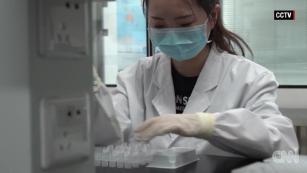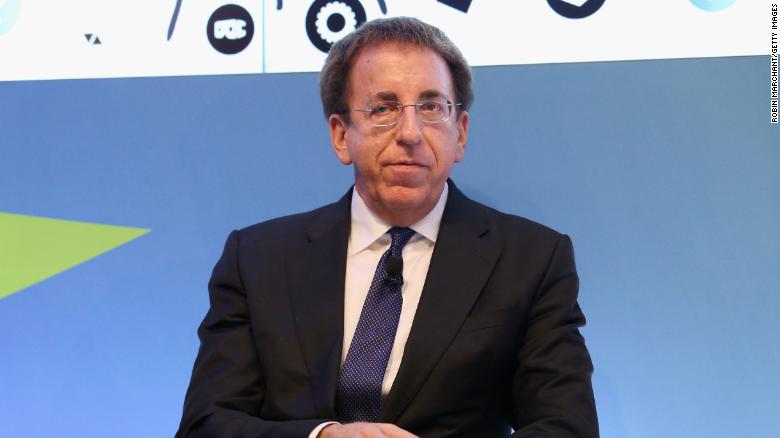By Sandee LaMotte, CNN
Updated 0704 GMT (1504 HKT) July 30, 2022
https://edition.cnn.com/2022/07/30/health/dean-ornish-lifestyle-study-alzheimers-wellness/index.html
"I think our unique contribution has been to use these very high-tech, expensive, state-of-the-art scientific measures to prove how powerful these very low-tech and low-cost interventions can be," said Ornish, a professor of medicine at the University of California, San Francisco.
Today, Ornish is trying to do for the brain what he did for the heart. At his nonprofit
Preventive Medicine Research Institute in California, he's using the same four lifestyle interventions to see if early-stage Alzheimer's can be "slowed, stopped or even reversed" without the use of drugs, devices or surgeries.
"What's good for your heart is good for your brain and vice versa," Ornish said. "Prior studies have shown moderate changes in lifestyle can slow the rate of progression of dementia and Alzheimer's. So, my hypothesis is that more intense lifestyle changes could stop or even reverse the decline."
Aggressive lifestyle changes
The original study on heart disease was small -- 28 people were in the experimental group Ornish then
followed for five years. Some skeptics criticized the program for its small sample size and said there was no way people could remain on the program's stringent plant-based diet without supervision.
In the
Ornish meal plan, no more than 10% of one's daily calories can come from fat. To accomplish that, all animal products besides egg whites and one cup of nonfat milk or yogurt each day are banned. Whole grains, fruits, vegetables and legumes are the basis of the diet, along with a few nuts and seeds. Refined carbohydrates, oils and excessive caffeine are avoided, but up to two cups a day of green tea are allowed.
"It's low-fat, but that's just a small part of the overall diet," Ornish said. "It's essentially a vegan diet, low in fat and sugar, eating foods as close as possible to nature."
The program also includes an hour a day of yoga-based stress management using stretching, breathing, meditation and relaxation techniques. Strength training and walking or other aerobic exercise are required for 30 minutes a day or an hour three times a week. Smoking is not allowed.
"There are also support groups," Ornish told CNN, "not just helping people stay on the diet but creating a safe environment where people can let down their emotional defenses and talk openly and authentically about what's really going on in their lives, warts and all.
"That was the part that surprised me the most -- these support groups are really intimate," he added. "Sharing things like 'I may look like the perfect father, but my kids are on heroin,' or whatever. Even by Zoom, they're getting to the same level of intimacy within one or two sessions because there's such a hunger for that."
Ornish calls that part of his program "
Love More." He answers skeptics who wonder why intimacy is such an integral part of a plan to reverse disease by pointing to
studies on people who are lonely, depressed or isolated.
Those people are "three to 10 times more likely to get sick and die prematurely from pretty much everything" when compared with people who say they have a sense of love, connection and community, Ornish maintained.
"Why? In part because you're more likely to smoke, overeat, stop exercising and other unhealthy things when you're feeling lonely and depressed," Ornish said.
Impact on other chronic diseases
By 1993, insurance giant Mutual of Omaha began reimbursing policyholders for the cost of Ornish's program, making it the first alternative therapy besides chiropractic to win insurance reimbursement. Medicare began covering lifestyle interventions for heart disease in 2006.
"And in October 2021 Medicare agreed to cover my reversing heart disease program when it's done via Zoom, which is really a game changer," Ornish said. "Now we can reach people at home, in rural areas and food deserts wherever they live, which will help reduce health inequities and health disparities."
In the last two decades, Ornish's research has shown the same four-part program can
lower blood sugars and heart disease risk for
patients with diabetes, reduce
prostate cancer cell growth,
improve depression within 12 weeks, reduce "
bad cholesterol" by an average of 40%, and more.
"With all this interest in personalized medicine, just how is it that these same lifestyle changes stop, and often reverse, the progression of such a wide spectrum of the most common and costly chronic diseases?" Ornish asked.
"Because they all share the same underlying biological mechanisms: chronic inflammation, oxidative stress, changes in the microbiome, changes in gene expression, overstimulation of the sympathetic nervous system, changes in immune function and so on," he said.
"And in turn, each one of these is directly influenced by what we eat, how we respond to stress, how much exercise we get and how much love and support we have," Ornish said.
Those lifestyle improvements likely change the body at a cellular level, he said. A
2008 study found the Ornish program affected some 500 genes in the body via epigenetics, chemical reactions that can activate or dismantle how a gene is expressed.
"After just three months on the Ornish lifestyle program, the research found a number of genes that regulate or prevent disease are turned on, and genes that cause many of the mechanisms that cause all these different conditions are turned off," Ornish said.
"You're not technically changing your genes, but you're changing the expression of those genes with chemical switches, turning them on or off," he said. "So, that means it's no longer all in our genes, making us victims of our genetic fate. We're not victims. There's a lot we can do."
Ornish lifestyle interventions have also been shown to
lengthen telomeres, the tips of chromosomes that control longevity and shorten as we age. Ornish did a
2013 pilot study with UC San Francisco biochemist Elizabeth Blackburn, who won the
2009 Nobel Prize in physiology or medicine for her work on telomeres.
"We found that telomerase, the enzyme that repairs and lengthens telomeres, increased by 30% after just three months on the program," Ornish said. "Then we found that people who had been on the program for five years had telomeres that were about 10% longer, a sign that aging is being reversed on the cellular level."
Will these same lifestyle interventions be enough to slow or even reverse cognitive decline in Alzheimer's and other dementias? Time will tell. Ornish's study is still underway, and while preliminary results appear promising, all the data must be gathered, analyzed and peer-reviewed before an outcome can be reported.
"But I believe that it's not one diet and lifestyle intervention for heart disease, another for diabetes or prostate cancer, and yet a different one for Alzheimer's. It's really the same for all these different conditions," Ornish told CNN.
"To reverse the disease, you need to follow the interventions nearly 100%. If you're just trying to prevent disease, then the more you change, the more you improve. But what matters most is your overall way of eating, living and loving so that we can all die young as old as possible."
https://edition.cnn.com/2022/07/30/health/dean-ornish-lifestyle-study-alzheimers-wellness/index.html













